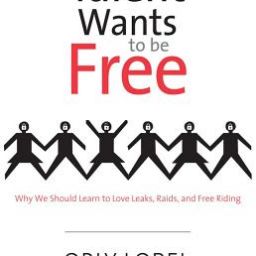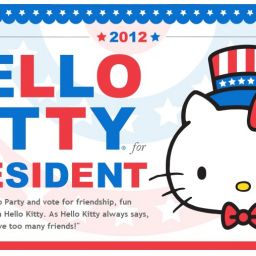Summary: Clay Shirky’s Here Comes Everybody, more appropriately subtitled “the power of organizing without [traditional formalized] organizations” explores an interesting theoretical model for understanding online social interactions and group dynamics and collaborative production, ranging from the supposed blogger / journalist dichotomy to open source code creation to fan interactions.
Group Interactions
One of the most important elements of this book are the definitions that can be used in other contexts. Shirky describes a scale of online interaction ranging from sharing to cooperation to collection action. With collective action
no one person can take credit for what gets created, and the project could not come into being without the participation of many.
Collective action takes additional effort by participants because
it requires a group of people to commit themselves to undertaking a particular effort together, and to do so in a way that makes the decision of the group binding on the individual members. … [It] creates shared responsibility, by tying the user’s identity to the identity of the group.
Future of Professionalism, especially Journalism
What is likely the most controversial section relates to the deprofessionalization of journalism, according to Shirky. Shirky writes about how professionalism in journalism, with editorial judgment traditionally serving as a filter between media creators and recipients. He compares filtering with our increasingly interactive media environment:
The old ways of filtering were neither universal not ideal; they were simply good for the technology of the day, and reasonably effective… The brute economic logic of allowing anyone to create anything and make it available to anyone creates such a staggering volume of new material, every day, that no group of professionals will be adequate to filter the material.
Filter-then-publish, whatever its advantages, rested on a scarcity of resources that is a thing of the past. The expansion of social media means that the only working system is publish-then-filter.
[Therefore] globally free publishing [online] is making public speech and action more valuable, even as its absolute diminishes the specialness of professional publishing.
He does not, however, describe bloggers as the replacement for journalists; after all, they are two groups that can interact, venn diagram style. One aspect missing from his discussion of journalism as a profession was a discussion of ethical standards. All professions have codes of conduct, ranging from the imposed-with-enforcement due to licensing (lawyers, doctors) to the self-imposed (librarians). Journalists fall in between the extremes, with blogging, citizen / grassroots journalism, and political bloviating by “journalists” have made defining the profession increasingly difficult. Dan Gillmor and the Center for Citizen Media have done their part to set the Principles for Citizen Journalism, but considering the weakened state of the traditional media, defining a “journalist” will continue to be in flux.
The future of collaboration — and the impact of fan labor
Shirky also is concerned about how collaborative systems work — and how they can fail:
…shared interest can now create that longevity … [and] is the secret of the open source ecosystem and … of all the large-scale and long-lived forms of sharing, collaborative work, and collective action now being tried. Because anyone can try anything, the projects that fail, fail quickly, but the people working on those projects can migrate just as quickly to the things that are visibly working. … open source projects advertise their successes and get failure for free. The arrangement allows the successes to become host to a community of sustained interest.
Shirky mentions a user protest about changes in Flickr, but the user/creator reaction to the platform owner’s changes can apply to many other circumstances, such as the Livejournal purge of “controversial” materials:
a small but very vocal part of the Flickr population went very publicly berserk castigating Flick and threatening to move to another photo service….What the most vociferous users objected to was the incontrovertible evidence that they were not in control. Although they had contributed the photos that make Flickr what it is, they were not in a position to say no to a unilateral change from Yahoo. The fact that the change was relatively minor didn’t matter, because even a minor change exposed the users’ relative powerlessness. …[T]he amount of public agita is indicative of how seriously users take the implicit bargain, even when (and perhaps especially when it is not explicitly supported by contract.
“Platform drift”, as many of us have seen already in free email services (moving from hotmail, to yahoo, now to gmail) and social networks (from friendster to facebook and myspace), is a concern, but so is perceived exploitation, as Shirky describes with the “perceived bargain changes” with AOL’s volunteers:
After AOL’s stock price rose into the stratosphere, …[some] guides banded together to file a class-action suit, claiming AOL had unfairly profited from their work. Nothing had changed about the job they were being asked to do; everything changed about the financial context they did it in, and that was enough to poison their goodwill.
The law’s role
So what makes a successful social tool? According to Shirky, and the name of one of the chapters, it takes a promise, a tool, and a bargain. Where does the law, in terms of contract play in the success? It can play a role in the bargain, though it often doesn’t. This differs from traditional means of contract formation and enforcement — even when there is a click-through license, the terms are not what limits or constructs “the bargain.”
The essential part of the bargain is that the users have to agree to it. It can’t be instantiated as a set of contractual rules, because users don’t read the fine print. … Instead, the bargain has to be part of the lived experience of interaction. (emphasis added)
The difference between ownership of the tool and the “ownership” of the productivity often causes conflict (and is something we are very interested in studying and writing about). While not focused on by Shirky, I think this is at the heart of the legal controversies between users/creators and more traditional owners of intellectual property, and I appreciate that it is mentioned here, if only in passing.
He also mentions the blurring of different rights due to the interactive aspects of social media:
To speak online is to publish and to publish online is to connect with others. With the arrival of globally accessible publishing, freedom of speech is now freedom of the press, and freedom of the press is freedom of assembly.
In conclusion, read this book if you are interested in online social organization theory. While the examples will become dated over time (why does he use “weblogging” for blogging in 2008?), the theoretical models and great charts will continue to be useful.





